When it comes to inspiring young women to become future leaders, CEO of Carlow County Development Partnership Mary Lawlor has one goal in mind. And that is to remove the “wow factor” around women who rise up the ranks.
“God, you’re a female CEO – I want the ‘wow factor’ of that to be gone,” she emphasises. “It has to be ‘yeah, there’s a female CEO, no big deal.’ It has to be the norm.”
And making it “the norm” is very much at the heart of The Takeover – an innovative pilot project where 10 transition year (TY) students in Carlow have been matched with 10 CEOs to give them a unique insight into what it takes to become a leader.
It’s clear that this is a project close to Mary’s heart, as she explains that it was witnessing Mary Robinson’s election as President that first “stirred something” regarding her own potential as a young girl.
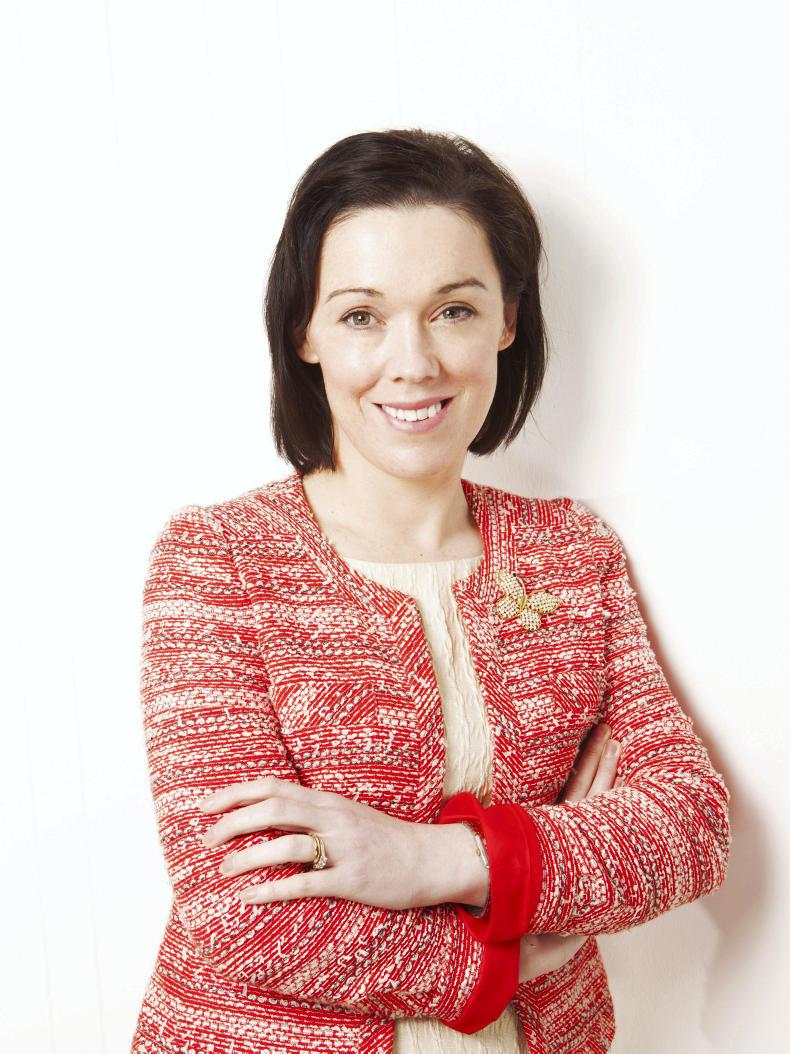
CEO of Carlow Country Development Partnership, Mary Lawlor.
“When she said: ‘I am of Ireland, come dance with me, mná na hÉireann, the hand that rocks the cradle has rocked the system,’ she stirred something inside of me I can’t quite explain,” she reflects.
“But I felt she dragged Ireland into a new era; and she dragged a lot of young girls with her.”
After school Mary went on to complete a degree in business management, followed by a master’s in entrepreneurship, but believes that “people saying the right thing, at the right time, in the right way” gave her the confidence to go for the role of CEO of Carlow County Development Partnership at just 27 in 2001.
Eighteen years on, she oversees a team of 22 with responsibility for rural development, social inclusion and labour market activation in the county; but has never forgotten the girl she once was.
Hence, The Takeover.
“The initiative is a girls’ leadership mentoring programme aimed at TY students and I suppose my own experience over the years would show that the right intervention at the right time can unlock potential,” says Mary.
A well as getting an insight into the day-to-day work of leaders, however, Mary explains that another important lesson of The Takeover was that it challenged the girls’ preconceptions that to become a CEO you had to be either very “bossy” or “super-human”
When setting up The Takeover, Mary’s first port of call was to tap into leaders in her own network – in fields from engineering and accounting to architecture and the arts – to see if they were willing to come on board.
With their support secured, her next stop was St Leo’s College in Carlow town, where up to 70 students applied for the 10 slots on the programme, which started with a team-building and skills workshop, before they were matched with their CEOs to “take over” their role for one hour.
So for instance, when student Sapphire Gao came to Carlow County Development Partnership to “take over” Mary’s role as CEO, she chaired a meeting discussing the organisation’s environmental policy, given her own interest in this issue. As a result of that meeting, the organisation has already implemented one of her recommendations by switching to internal mail envelopes, which can be re-used 49 times before being recycled, to cut down on waste.
“That’s a real and positive change,” says Mary.
As well as getting an insight into the day-to-day work of leaders, however, Mary explains that another important lesson of The Takeover was that it challenged the girls’ preconceptions that to become a CEO you had to be either very “bossy” or “super-human”.
“They said: ‘They (the leaders) were so kind, they were so warm, they were so friendly, they were so nice to their staff’ and I said, ‘Yes, now they know leaders are human beings,’” says Mary.
Moreover, Mary has seen how the participants have grown in self-confidence since starting the programme.
“One of the girls said: ‘I never speak up, and here I am and I can’t stop talking’,” she relates.
“Another girl by the end said: ‘I found myself putting my hand up, volunteering for things in class that I’ve never done before.’ (Another said) ‘I can’t believe I’m here, I never get picked for anything.’”
In the coming weeks, the girls will take part in workshops exploring some of the key traits of leaders such as problem-solving, communications and team-building, before another “take over” session at the end of the academic year.
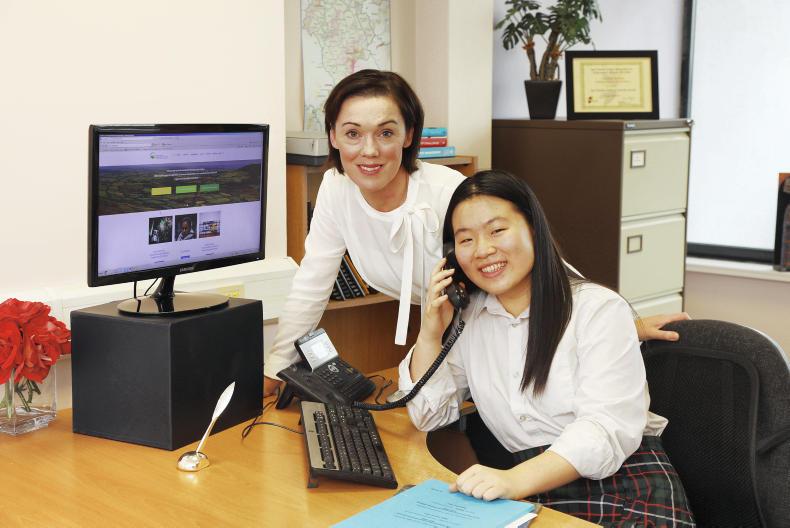
CEO of Carlow County Development Partnership Mary Lawlor with The Takeover candidate Sapphire Gao.
While this is just the pilot programme, Mary hopes to roll it out into the wider community in Co Carlow, as well as sharing the structure online so that other groups in Ireland can replicate it.
And long-term, her hope is that such early intervention will plant the seeds for future female leaders to grow in confidence.
“My goal then is that when girls are 13, 14 and 15, they will say, ‘I want to be not just an accountant, but I want to be a partner in a company,’” smiles Mary. “Or, ‘I could do that. No big deal.’”
Anna Colgan (16) lives on a beef and tillage farm in Rathvilly, Co Carlow. She was matched with Padraic Lalor of Lalor O’Shea Chartered Accountants and undertook a number of challenges during her Takeover, including chairing a meeting discussing new marketing material and also doing a set of accounts.
While she admits she was “very nervous” beforehand, she explains that the experience changed her perception of what it means to be a leader. “You interacted with a lot of people, you gave them tasks, but you did work yourself as well and you all worked as a team; but I really wanted to be an accountant after that,” she says.
Girls want to be sure, they want to be positive that they’ll get a job or whatever, but boys don’t really mind
Speaking more generally about why there are less women in positions of leadership, Anna believes that traditional family roles may have held women back in the past, while lack of confidence when it comes to applying for jobs is also an issue.
“Girls want to be sure, they want to be positive that they’ll get a job or whatever, but boys don’t really mind; they’ll go for 10 jobs, where girls will go for the one job that they want,” she suggests.
However, as a result of The Takeover she says that she has certainly seen her skillset and confidence grow.
“Our dreams have grown bigger. I think all of us are more ambitious because of our experience,” she says. “Once you see what you can do, you really go for it.”
Hollie Collins (16) is from Carlow town and was matched with Ann Mulrooney, who was the head of VISUAL, a contemporary art centre in Carlow, until a recent appointment to the Dublin Science Gallery.
During The Takeover, Hollie had the opportunity to tour the centre and meet the team behind the scenes, as well as giving tours of a new exhibition to visitors.
“It was a bit nerve-wracking,” she admits, “but it was really good. I found it took me out of my comfort zone. Usually I’d be very shy to somebody I wouldn’t know, but I found it pushed me to be more open.”
I found that if I met someone new and I knew it was important, I’d just find it very hard; I wouldn’t know what to say
Like Anna, Hollie found that the experience gave her a fresh insight into the traits of a leader.
“[Ann Mulrooney] was very easy to talk to and she really took on board everyone’s opinions,” she says.
As a result of her experience at VISUAL, Hollie is interested in exploring opportunities in marketing in the future, but in the meantime is enjoying her newfound confidence.
“(Before) I found that if I met someone new and I knew it was important, I’d just find it very hard; I wouldn’t know what to say and I’d be really overthinking it,” she says.
“But it came really naturally to me I found, because I knew it was very important and I wanted to make a good impression and I think that stayed with me and I’m just much more comfortable in conversation with people.”
Rachel Diyaolu (16) from Carlow town was matched with president of Carlow College, Fr Conn O’Maoldhomhnaigh, during The Takeover. While she is hoping to pursue a career in medicine, she felt the programme was too good an opportunity to turn down.
“That’s what TY is about – applying for things, getting yourself out there – and it just sounded really appealing and nice to get an insight into the working world,” says Rachel, who chaired a meeting about an open evening and graduation ceremony, took part in a meet and greet with staff and students, and visited the various college departments.
It’s there for you for a reason to impact your life, make it better, make you feel better about yourself and change your perspective about how you are in society
As well as the takeover itself, Rachel really enjoyed the preparation workshop, as she felt that she and her counterparts were treated as “candidates, not students”.
Going forward, she would encourage any young woman to take a chance and apply for the programme.
“There’s no point in not going for anything, because the outcome of not going for something is you’re not going to get it. But if you try for something and you think, ‘Oh I won’t get it’, there’s still the chance that you will and I believe everything happens for a reason,” she concludes. “It’s there for you for a reason to impact your life, make it better, make you feel better about yourself and change your perspective about how you are in society, so I feel like this is really something that could change someone.”
Niamh Millward (16) lives close to Athy and was matched with Seamus Lancaster, MD of DPF Engineering, due to her interest in maths and science.
During her takeover she did a tour of the workroom, met with department heads, reviewed spreadsheets and got an insight into the staff recruitment process; all while gaining an understanding into what it takes to lead a team.
I found I’ve been putting myself forward for more things and not sitting in the back row of class and not putting my hand up
Since taking part in the programme, Niamh finds that she no longer “second-guesses” herself when it comes to new challenges.
“I found I’ve been putting myself forward for more things and not sitting in the back row of class and not putting my hand up,” she explains, adding that she has learned that there is nothing to lose by trying new things.
“It’s always the case of what’s the worst that can happen? Like if you’re applying for a programme, what’s the worst that can happen? You don’t get the programme.
“If you’re not going to apply, there’s no way you can get it. So I think we need to start putting ourselves out there and taking these opportunities,” she says.
When it comes to inspiring young women to become future leaders, CEO of Carlow County Development Partnership Mary Lawlor has one goal in mind. And that is to remove the “wow factor” around women who rise up the ranks.
“God, you’re a female CEO – I want the ‘wow factor’ of that to be gone,” she emphasises. “It has to be ‘yeah, there’s a female CEO, no big deal.’ It has to be the norm.”
And making it “the norm” is very much at the heart of The Takeover – an innovative pilot project where 10 transition year (TY) students in Carlow have been matched with 10 CEOs to give them a unique insight into what it takes to become a leader.
It’s clear that this is a project close to Mary’s heart, as she explains that it was witnessing Mary Robinson’s election as President that first “stirred something” regarding her own potential as a young girl.

CEO of Carlow Country Development Partnership, Mary Lawlor.
“When she said: ‘I am of Ireland, come dance with me, mná na hÉireann, the hand that rocks the cradle has rocked the system,’ she stirred something inside of me I can’t quite explain,” she reflects.
“But I felt she dragged Ireland into a new era; and she dragged a lot of young girls with her.”
After school Mary went on to complete a degree in business management, followed by a master’s in entrepreneurship, but believes that “people saying the right thing, at the right time, in the right way” gave her the confidence to go for the role of CEO of Carlow County Development Partnership at just 27 in 2001.
Eighteen years on, she oversees a team of 22 with responsibility for rural development, social inclusion and labour market activation in the county; but has never forgotten the girl she once was.
Hence, The Takeover.
“The initiative is a girls’ leadership mentoring programme aimed at TY students and I suppose my own experience over the years would show that the right intervention at the right time can unlock potential,” says Mary.
A well as getting an insight into the day-to-day work of leaders, however, Mary explains that another important lesson of The Takeover was that it challenged the girls’ preconceptions that to become a CEO you had to be either very “bossy” or “super-human”
When setting up The Takeover, Mary’s first port of call was to tap into leaders in her own network – in fields from engineering and accounting to architecture and the arts – to see if they were willing to come on board.
With their support secured, her next stop was St Leo’s College in Carlow town, where up to 70 students applied for the 10 slots on the programme, which started with a team-building and skills workshop, before they were matched with their CEOs to “take over” their role for one hour.
So for instance, when student Sapphire Gao came to Carlow County Development Partnership to “take over” Mary’s role as CEO, she chaired a meeting discussing the organisation’s environmental policy, given her own interest in this issue. As a result of that meeting, the organisation has already implemented one of her recommendations by switching to internal mail envelopes, which can be re-used 49 times before being recycled, to cut down on waste.
“That’s a real and positive change,” says Mary.
As well as getting an insight into the day-to-day work of leaders, however, Mary explains that another important lesson of The Takeover was that it challenged the girls’ preconceptions that to become a CEO you had to be either very “bossy” or “super-human”.
“They said: ‘They (the leaders) were so kind, they were so warm, they were so friendly, they were so nice to their staff’ and I said, ‘Yes, now they know leaders are human beings,’” says Mary.
Moreover, Mary has seen how the participants have grown in self-confidence since starting the programme.
“One of the girls said: ‘I never speak up, and here I am and I can’t stop talking’,” she relates.
“Another girl by the end said: ‘I found myself putting my hand up, volunteering for things in class that I’ve never done before.’ (Another said) ‘I can’t believe I’m here, I never get picked for anything.’”
In the coming weeks, the girls will take part in workshops exploring some of the key traits of leaders such as problem-solving, communications and team-building, before another “take over” session at the end of the academic year.

CEO of Carlow County Development Partnership Mary Lawlor with The Takeover candidate Sapphire Gao.
While this is just the pilot programme, Mary hopes to roll it out into the wider community in Co Carlow, as well as sharing the structure online so that other groups in Ireland can replicate it.
And long-term, her hope is that such early intervention will plant the seeds for future female leaders to grow in confidence.
“My goal then is that when girls are 13, 14 and 15, they will say, ‘I want to be not just an accountant, but I want to be a partner in a company,’” smiles Mary. “Or, ‘I could do that. No big deal.’”
Anna Colgan (16) lives on a beef and tillage farm in Rathvilly, Co Carlow. She was matched with Padraic Lalor of Lalor O’Shea Chartered Accountants and undertook a number of challenges during her Takeover, including chairing a meeting discussing new marketing material and also doing a set of accounts.
While she admits she was “very nervous” beforehand, she explains that the experience changed her perception of what it means to be a leader. “You interacted with a lot of people, you gave them tasks, but you did work yourself as well and you all worked as a team; but I really wanted to be an accountant after that,” she says.
Girls want to be sure, they want to be positive that they’ll get a job or whatever, but boys don’t really mind
Speaking more generally about why there are less women in positions of leadership, Anna believes that traditional family roles may have held women back in the past, while lack of confidence when it comes to applying for jobs is also an issue.
“Girls want to be sure, they want to be positive that they’ll get a job or whatever, but boys don’t really mind; they’ll go for 10 jobs, where girls will go for the one job that they want,” she suggests.
However, as a result of The Takeover she says that she has certainly seen her skillset and confidence grow.
“Our dreams have grown bigger. I think all of us are more ambitious because of our experience,” she says. “Once you see what you can do, you really go for it.”
Hollie Collins (16) is from Carlow town and was matched with Ann Mulrooney, who was the head of VISUAL, a contemporary art centre in Carlow, until a recent appointment to the Dublin Science Gallery.
During The Takeover, Hollie had the opportunity to tour the centre and meet the team behind the scenes, as well as giving tours of a new exhibition to visitors.
“It was a bit nerve-wracking,” she admits, “but it was really good. I found it took me out of my comfort zone. Usually I’d be very shy to somebody I wouldn’t know, but I found it pushed me to be more open.”
I found that if I met someone new and I knew it was important, I’d just find it very hard; I wouldn’t know what to say
Like Anna, Hollie found that the experience gave her a fresh insight into the traits of a leader.
“[Ann Mulrooney] was very easy to talk to and she really took on board everyone’s opinions,” she says.
As a result of her experience at VISUAL, Hollie is interested in exploring opportunities in marketing in the future, but in the meantime is enjoying her newfound confidence.
“(Before) I found that if I met someone new and I knew it was important, I’d just find it very hard; I wouldn’t know what to say and I’d be really overthinking it,” she says.
“But it came really naturally to me I found, because I knew it was very important and I wanted to make a good impression and I think that stayed with me and I’m just much more comfortable in conversation with people.”
Rachel Diyaolu (16) from Carlow town was matched with president of Carlow College, Fr Conn O’Maoldhomhnaigh, during The Takeover. While she is hoping to pursue a career in medicine, she felt the programme was too good an opportunity to turn down.
“That’s what TY is about – applying for things, getting yourself out there – and it just sounded really appealing and nice to get an insight into the working world,” says Rachel, who chaired a meeting about an open evening and graduation ceremony, took part in a meet and greet with staff and students, and visited the various college departments.
It’s there for you for a reason to impact your life, make it better, make you feel better about yourself and change your perspective about how you are in society
As well as the takeover itself, Rachel really enjoyed the preparation workshop, as she felt that she and her counterparts were treated as “candidates, not students”.
Going forward, she would encourage any young woman to take a chance and apply for the programme.
“There’s no point in not going for anything, because the outcome of not going for something is you’re not going to get it. But if you try for something and you think, ‘Oh I won’t get it’, there’s still the chance that you will and I believe everything happens for a reason,” she concludes. “It’s there for you for a reason to impact your life, make it better, make you feel better about yourself and change your perspective about how you are in society, so I feel like this is really something that could change someone.”
Niamh Millward (16) lives close to Athy and was matched with Seamus Lancaster, MD of DPF Engineering, due to her interest in maths and science.
During her takeover she did a tour of the workroom, met with department heads, reviewed spreadsheets and got an insight into the staff recruitment process; all while gaining an understanding into what it takes to lead a team.
I found I’ve been putting myself forward for more things and not sitting in the back row of class and not putting my hand up
Since taking part in the programme, Niamh finds that she no longer “second-guesses” herself when it comes to new challenges.
“I found I’ve been putting myself forward for more things and not sitting in the back row of class and not putting my hand up,” she explains, adding that she has learned that there is nothing to lose by trying new things.
“It’s always the case of what’s the worst that can happen? Like if you’re applying for a programme, what’s the worst that can happen? You don’t get the programme.
“If you’re not going to apply, there’s no way you can get it. So I think we need to start putting ourselves out there and taking these opportunities,” she says.





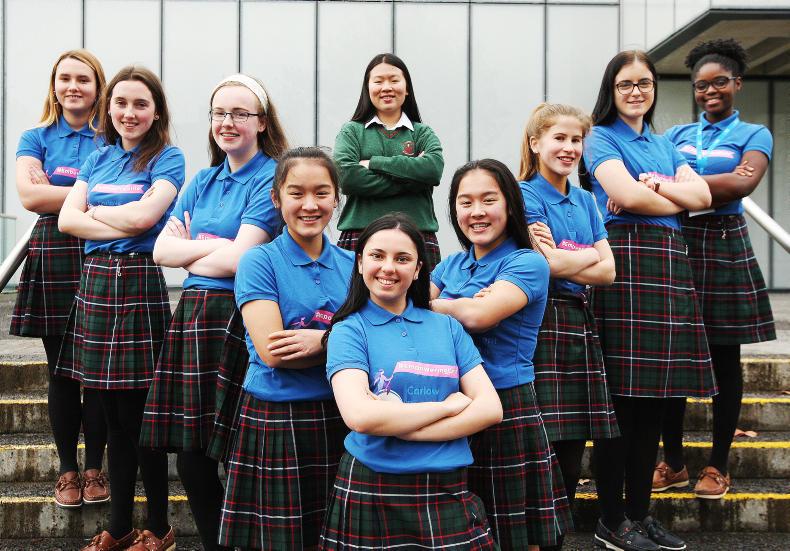

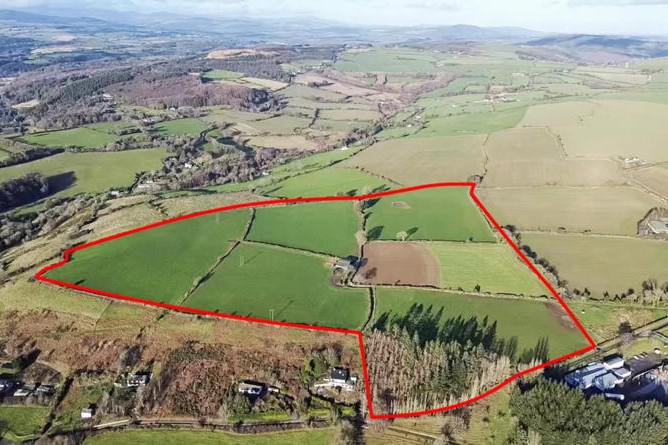
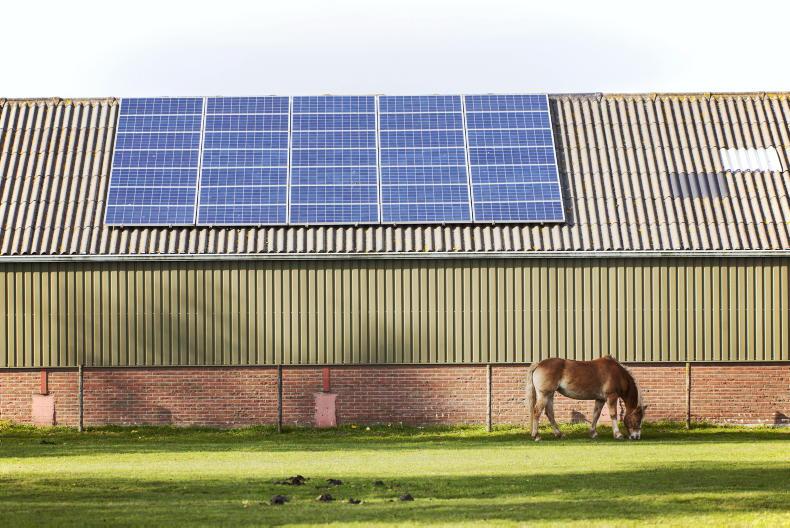
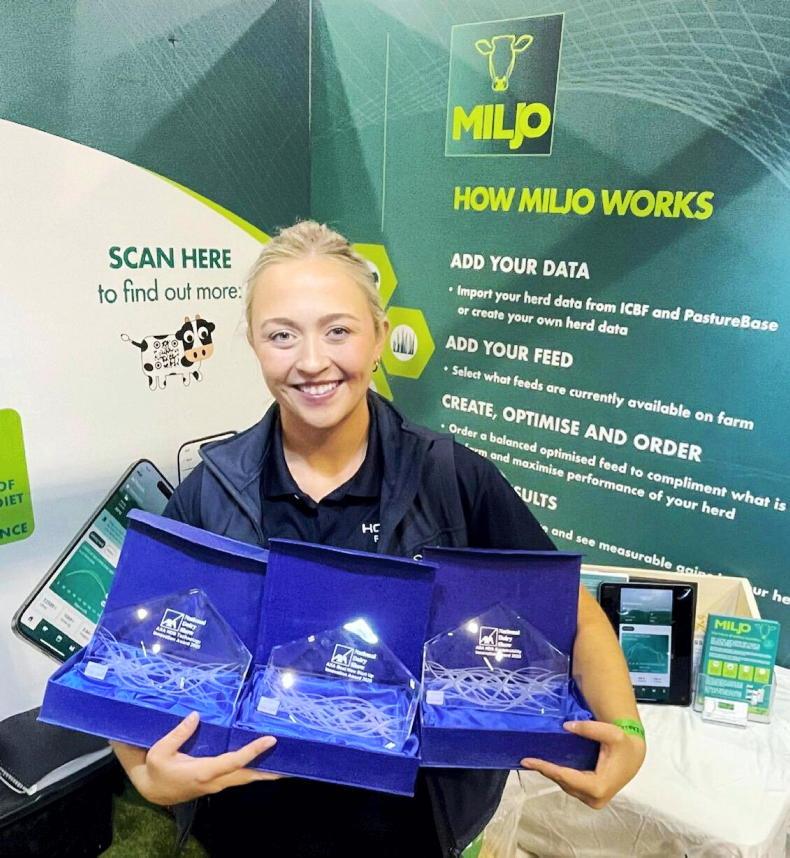
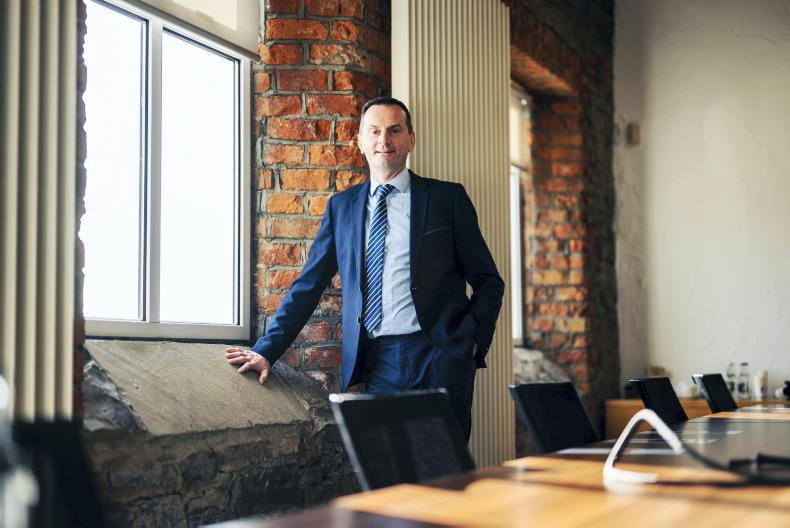
SHARING OPTIONS